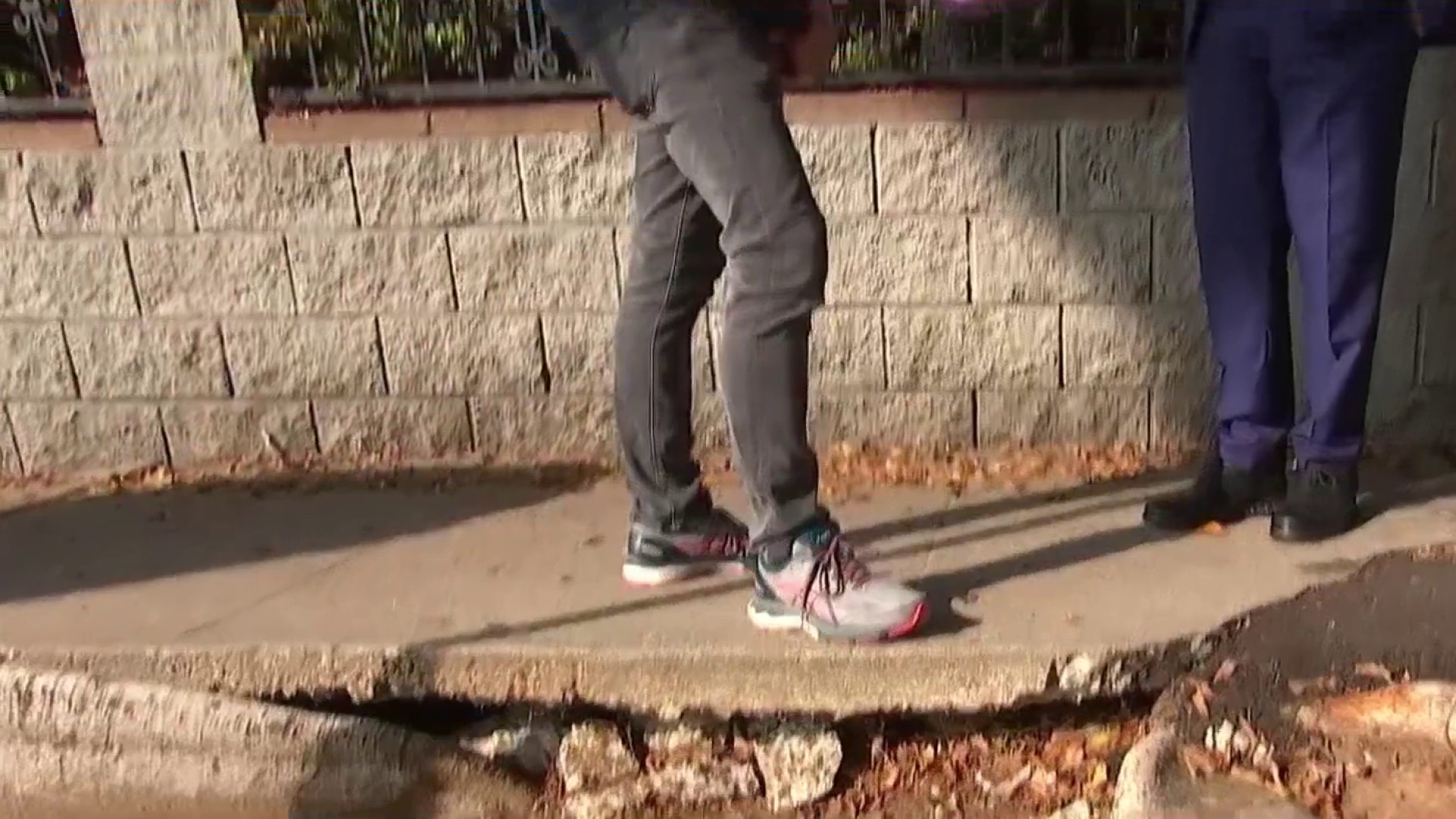In the 1940's, Los Angeles was very much a segregated city; the city's exclusive private clubs didn't accept people of color, many neighborhoods kept out anyone who wasn't white, and hotels wouldn't rent event spaces to Black people.
"There was no place for us to have events ... weddings, showers, graduations," said Sherri Lee-Lewis, current president of the Wilfandel Club, the city's first private club for Black women.
The club was the brainchild of two prominent Black women, Fannie Williams and Della Williams, wife of famed architect Paul Williams.
In 1945, they assembled a group of 50 influential Black women, raised the money to buy a stately Mediterranean home in West Adams, and started the Wilfandel Club. The name was a combination of the William's last name and the first syllable of their first names.
Get top local stories in Southern California delivered to you every morning. >Sign up for NBC LA's News Headlines newsletter.
"Their idea was, let's create something for our own so that we can come together and have celebratory events," Lee-Lewis said.
It was an era when Black people were not welcome in many parts of LA.
"We didn't have Jim Crow laws like in the South, but you knew [in LA] where you could go and where you couldn't go," said 92-year old Janice Carter, a past president of the Wilfandel Club.
Black people couldn't buy homes in areas like Hancock Park, where home sellers were bound by rules called conditions, covenants, and restrictions, which said the "property shall not at any time be lived upon by any person whose blood is not entirely of the Caucasian race."
And a newspaper ad to lure homebuyers to the Eagle Rock neighborhood of LA boasted, "The residents of Eagle Rock are all of the white race."
So Della and Fannie Williams decided the Wilfandel Club would be "a place where the community would feel welcome," said Lee-Lewis.
By its 10th anniversary, the club had paid off its mortgage and since then, generations of LA's Black families have held weddings, anniversaries, baby showers and other events there.
"This home is owned by Black women and that is phenomenal. That's historic," Lee-Lewis said.
Part of the club's mission is philanthropy, and each year it gives out college scholarships.
And in 2023, the Club wants people to know that everyone is welcome there.
"We've always been a place that accepts," said the club's assistant treasurer, Jan Bell.
"We have even begun to have LGBTQ+ organizations come to us" to have events, Bell added.
Renting the club for events helps pay for the constant repair and renovation bills of the 1912 club house.
"It's hard to maintain the house. It costs us money," Lee-Lewis said.
Of equal, if not bigger concern, are the cracked and dangerous sidewalks around the Wilfandel Club, which are property of the City of Los Angeles.
In November 2021, club members emailed the NBC4 I-Team that the sidewalks were "damaged" and elderly club members had fallen and hurt themselves.
"I stepped into a crack on the sidewalk and fell backwards," 87-year-old club member Evelyn Clay told the I-Team. "The sidewalks have been like this for a long time," Clay added.
The I-Team discovered that the City of LA had no record of ever repairing the sidewalks around the club, and did a story about that in May 2022. Within days, city work crews came out and patched the cracks with asphalt, considered a temporary fix.
"Black asphalt just thrown down on the sidewalk is not acceptable," Lee-Lewis said.
The office of then-city councilman Herb Wesson told NBC4 it would find money in its discretionary fund to fix the Wilfandel's sidewalks.
Wesson's chief-of-staff, Kimani Black, emailed a club member saying he's "looking forward to working with your group to make this area more accessible."
And the LA Department of Public Works told NBC4 in June 2022 that "Council District 10 ... is looking into funding sidewalk repairs [around] the Wilfandel Club."
Wesson was replaced as CD10 councilperson by Heather Hutt in September 2022, and her office reiterated that it would give the Wilfandel money to be used to fix the sidewalks.
In October 2022, at the Club's 75th anniversary celebration, councilmember Hutt presented the club with a mock-up of a $75,000 check, representing money that could be used to fix those cracked sidewalks. But now, five months later, the council office still hasn't given the club the actual dollars.
The I-Team asked Hutt's spokesperson, Ariana Drummond, if and when the club would get the money, and she said she'd get back to us by last Friday, February 12. But so far, Hutt's office hasn't given NBC4 an answer.
"It was council District 10 that told me specifically that they were giving us the money to fix the sidewalks," Lee-Lewis told NBC4. "I like to think our elected officials keep their word and that they come through," she added.
The I-Team will be watching to see if Council District 10 keeps its word and gives the club the much-needed money for sidewalk repairs, so no one else gets hurt.



